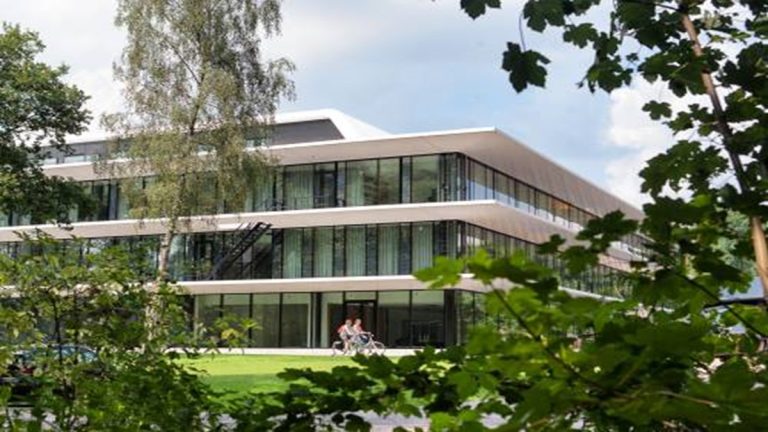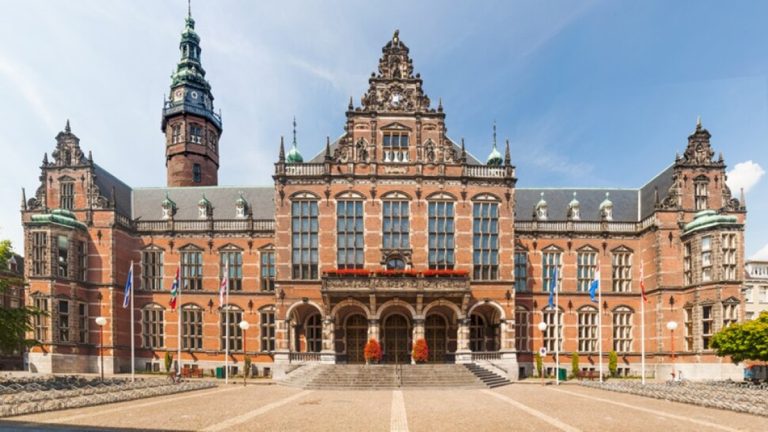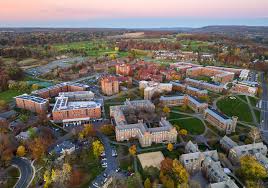As part of the Dutch National research program Aviation in Transition, the Production Technology group at the University of Twente has a PhD position on the simulation of a novel assembly technique for thermoplastic composites in a T-joint configuration.
Background and challenge
Thermoplastic composite materials are considered a prime candidate for the next generation of commercial aircraft. Compared to thermoset composites, these materials offer improved toughness, dust-free assembly through thermoplastic welding, and improved recycling opportunities. To date, the aircraft manufacturing industry mainly relies on autoclave consolidation for the manufacture of medium-sized to large components. However, because autoclave consolidation is costly and energy-intensive, the industry is pursuing alternative technologies. One promising alternative is vacuum-bag-only (VBO) consolidation. This method is applied to large preforms manufactured using automated fiber placement. Consolidation of the final structure takes place under vacuum in an oven or on heated tooling, eliminating the need for an autoclave.
The VBO process shows significant potential for the cost- and energy-efficient manufacturing of large structures, but still requires further development. A key challenge lies in the formation of defects, such as in-plane or out-of-plane waviness and shape distortions, which can arise during layup or consolidation. Currently, preventing these defects relies on time-consuming and expensive trial-and-error methods. To overcome this, we aim to develop advanced simulation tools that can predict defect formation early in the process, enabling more efficient process window development and tool design.
Job description
We are looking for a PhD candidate to strengthen our research team and develop predictive models for defect formation and shape distortions during the layup and VBO consolidation of thermoplastic composite structures. The role will involve designing and conducting experiments to identify, analyze, and quantify the relevant physical mechanisms, followed by the development of models to describe these, leading to process simulations models to predict and hence to prevent such defects from occurring in practice. Earlier work on defect formation during autoclave and press consolidation processes forms an excellent starting point for the task at hand. As part of the project, you will collaborate closely with other researchers and share your results with industrial partners, contributing to impactful advancements in the aerospace industry.
YOUR PROFILE
You are a highly motivated researcher who is driven by curiosity, and you have:
- A Master’s degree in Mechanical Engineering or Aerospace Engineering
- Strong experimental and theoretical skills in polymers and fiber reinforced composites, with an emphasis on processing
- Experience in scripting languages like Python or Matlab
- Proficiency in English, both spoken and written (we require a TOEFL > 90 or IELTS > 6.5 score)
OUR OFFER
We offer a full-time 4-year Ph.D. position with a qualifier in the first year; excellent mentorship in a stimulating research environment with excellent facilities; and a personal development program within the Twente Graduate School. It also includes:
- Gross monthly salary of € 2.872 in the first year, increasing each year up to € 3.670 in the fourth year;
- Excellent benefits including a holiday allowance of 8% of the gross annual salary, an end-of-year bonus of 8.3%, a solid pension scheme, and 29 vacation in days in case of full-time employment;
- A training program, where you and your supervisors will settle a plan for education and supervision;
- Excellent laboratory and support facilities;
- A green campus with free access to sports facilities and an international scientific community;
- A family-friendly institution that offers parental leave (both paid and unpaid).
INFORMATION AND APPLICATION
Please submit your application before 31 October 2024 using the “Apply now” button, and include:
- A cover letter of at most 1 page A4, explaining your motivation for the application, and why you qualify for this project;
- A Curriculum Vitae, including contact information for at least two academic references;
- Transcripts from your Bachelor and/or Master degrees.
Interviews will be held in the 2nd or 3rd week of November 2024.
Additional information about this position can be acquired from dr.ir. Wouter Grouve (w.j.b.grouve@utwente.nl).



